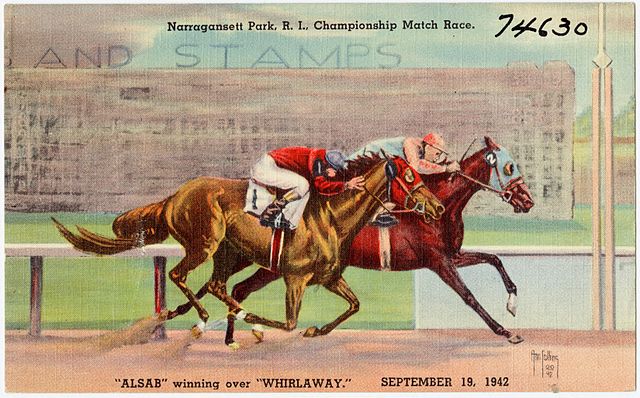
Asking productive reference questions II
A student may still want to know:
Will it be enough to say that my research subject is the economic history of horse racing in Thailand?
We might reply:
That is a good start, but it can also help for the Thammasat University librarian to know if there will be a comparative international study of horse racing in other countries, for example. Also, will specific subjects be covered, such as racing, breeding, selling, riding, and training horses?
The student may ask:
Are there any other ways I can prepare research questions for the most effective response from TU librarians?
We might say:
If any specialized terms are part of the research, it can help to be sure of what they mean. Otherwise, the librarian may have to take time to look up the terms to be sure of their meaning.
As a general rule, if students share with librarians a description of the data that they have already found, where it was located, where they searched, and what keywords were used, this can also save time. Knowing what the student has already tried can prevent us from covering the same ground, with the same results again.
The student may wonder:
What is the difference between single facts, background information, and in-depth data?
We might reply:
Single facts are things like numbers, names, dates, and other information that does not require further analysis. Single fact questions usually do not start with the word why.
Background information gives a general impression of a subject, offering names, dates, places, and other influential material. Some background information sources include bibliographies or other leads to further useful information.
In-depth questions are more complex and are generally impossible to answer yes or no without further consideration.
They ask about underlying causes, reasons, or motives for historical events.
Because in-depth questions have many sides, they often do not have easy answers. For this reason, it is necessary to compile data in order to give an informed interpretation of the facts.
The TU librarian will help the student access the data needed in order to make the most educated interpretation possible.
If the student asks:
What is the best way to prepare an in-depth research question to get the best response from a research librarian?
We might reply:
Better not wait until the last minute. Since it takes time to find enough data to help understand in-depth questions, the sooner the questions are asked, the better the results will be.
All students know that it can take a long time to research and write a graduate thesis, and this is because finding and interpreting all the data to answer a complex question is a time-consuming process.
By asking a TU librarian for research assistance, students can save a considerable amount of time that might otherwise be wasted looking at materials that are not helpful for a specific project. The more specific the in-depth questions are, the more additional time will be saved, since the librarian will know exactly where to look for the needed data. Keep in mind that if the TU Library does not own all of the resources needed, or have access to them on the TU Library research databases, the TU Library Interlibrary Loan (ILL) service may also be used, but it will take a certain amount of time to receive materials by interlibrary loan. This should be factored into the amount of time the research project will take.

(All images courtesy of Wikimedia Commons)
